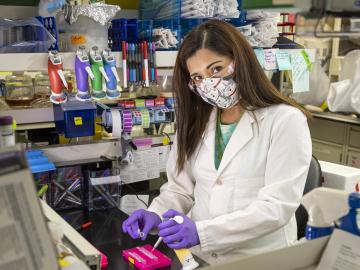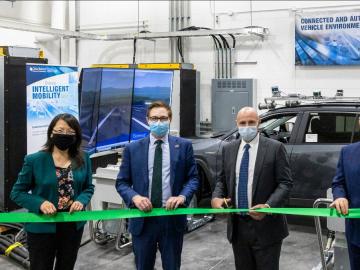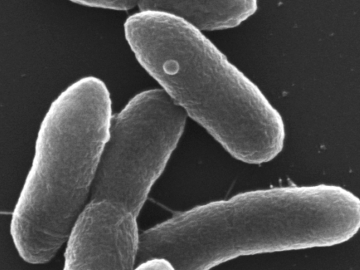Filter News
Area of Research
News Type
News Topics
- (-) Biotechnology (2)
- (-) Composites (1)
- 3-D Printing/Advanced Manufacturing (28)
- Advanced Reactors (14)
- Artificial Intelligence (8)
- Big Data (11)
- Bioenergy (12)
- Biology (5)
- Biomedical (21)
- Buildings (1)
- Chemical Sciences (5)
- Clean Water (2)
- Climate Change (10)
- Computer Science (39)
- Coronavirus (23)
- Critical Materials (2)
- Cybersecurity (4)
- Decarbonization (1)
- Energy Storage (21)
- Environment (29)
- Exascale Computing (3)
- Frontier (1)
- Fusion (13)
- Grid (7)
- High-Performance Computing (3)
- Isotopes (8)
- Machine Learning (8)
- Materials (2)
- Materials Science (37)
- Mathematics (2)
- Mercury (1)
- Microscopy (8)
- Molten Salt (2)
- Nanotechnology (17)
- National Security (2)
- Neutron Science (30)
- Nuclear Energy (31)
- Physics (13)
- Polymers (7)
- Quantum Science (14)
- Security (3)
- Space Exploration (2)
- Summit (17)
- Sustainable Energy (24)
- Transformational Challenge Reactor (5)
- Transportation (15)
Media Contacts

From soda bottles to car bumpers to piping, electronics, and packaging, plastics have become a ubiquitous part of our lives.

ORNL and Department of Energy officials dedicated the launch of two clean energy research initiatives that focus on the recycling and recovery of advanced manufacturing materials and on connected and

ORNL scientists have modified a single microbe to simultaneously digest five of the most abundant components of lignocellulosic biomass, a big step forward in the development of a cost-effective biochemical conversion process to turn plants into




